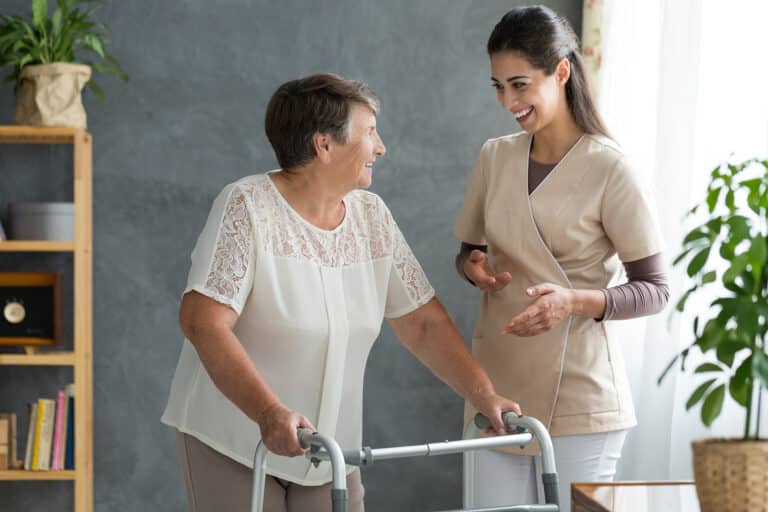Every year, around 60,000 new cases of Parkinson’s disease are diagnosed. Most of the people diagnosed with Parkinson’s disease are over the age of 65. Parkinson’s disease causes a wide range of symptoms that can make it difficult for seniors to live alone without any help from home care or family caregivers.
If your senior parent wants to continue living independently but is finding it difficult to keep up with chores like laundry or vacuuming or needs help with everyday tasks like cooking and shopping, home care providers can help. Home care providers can help seniors continue living independently even if they have health or mobility challenges.
If you’re worried that your senior parent may have a high risk of developing Parkinson’s disease, here are some of the earliest signs of Parkinson’s.
If you notice that your mom or dad is having any of these symptoms, make sure they are screened by a doctor:
1. Tremors or Shaking
Tremors are one of the most noticeable early signs of Parkinson’s disease. Your senior parent might notice their hand or fingers shaking when they’re resting. The tremor can start in just one hand or side of the body. It often gets worse with time.
Not all shaking is Parkinson’s, but it’s worth checking with a doctor if it happens often.
2. Slower Movements (Bradykinesia)
Seniors with Parkinson’s may move more slowly than before. This is called bradykinesia. Everyday tasks like getting dressed or eating may take longer. If you notice that your mom or dad seems to be moving more slowly than normal, it could be an early symptom of Parkinson’s.
Your mom or dad also might feel stiff or struggle to start moving after sitting for a while. Slower movement can make daily life harder, especially if your mom or dad is living independently without the assistance of home care or family, so it’s an important symptom to notice.
3. Stiff Muscles
Muscle stiffness can happen in Parkinson’s disease. Your mom or dad might feel tightness in their arms, legs, or neck. This stiffness can limit movement and make stretching or turning difficult. Sometimes, the stiffness doesn’t go away, even with rest. It can also cause discomfort or pain.
Stiffness can be caused by many things, especially if your parents tend to be sedentary. However, if medication or movement doesn’t relieve the stiffness, it would be a good idea to get that checked out by a doctor.
4. Changes in Posture and Balance
Seniors with Parkinson’s might start to slouch or lean forward when standing or walking. This is because the disease affects posture. They may also lose their balance more often. Frequent stumbling or falling can be an early warning sign. It’s important to check for these changes to prevent injuries.
5. Changes in Writing
Parkinson’s disease can affect how seniors write. One common change is smaller, cramped handwriting. This is called micrographia. If you have noticed that your mom or dad is signing their name differently when they write checks or that their handwriting looks different when they write out a shopping list, that could be a sign of Parkinson’s.
If you or an aging loved one are considering Home Care in Frisco, TX, contact the caring staff at HomeWell Care Services Plano TX today. Call (469) 596-6500
HomeWell Care Services Plano TX is a Trusted Home Care Agency serving Plano, Allen, McKinney, Frisco, Richardson, Garland, Little Elm, Prosper, and the surrounding areas.
- How Does Home Care Assistance Increase Senior Safety? - January 24, 2025
- 5 Ways Home Care Assistance Helps Seniors With Parkinson’s - January 9, 2025
- Tips For Calming A Senior Parent With Alzheimer’s - December 24, 2024



